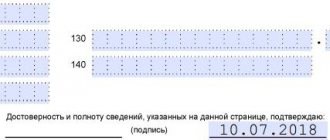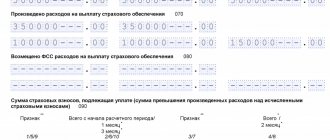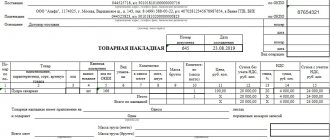- December 4, 2019
- Terms
- Elena Erokhina
Payments are provided for the performance of a number of functions by government bodies. It is collected from both legal entities and individuals in the amount established by law. Simply put, this is the cost of the service provided by official organizations authorized to carry out such actions.
Opinions differ among ordinary people: is state duty a tax or a fee? For the majority of Russian citizens, these two concepts are equivalent. People don't look at them from a legal perspective. Let's find out if there is anything in common between a tax and a fee and what their differences are.
How are they similar?
A tax or fee is an amount levied on individuals, organizations and individual entrepreneurs and sent to the budget.
Without going into details, then, undoubtedly, state duty refers to taxes and fees that have common features:
- enshrined in the Tax Code of the Russian Federation;
- amenable to clarification and change of amount at the local level;
- the amounts paid go to the treasury.
Legal definition
Tax refers to funds transferred free of charge by a subject for the purposes of the state or municipalities. This payment is mandatory and is paid in accordance with the Tax Code of the Russian Federation.
A fee is the amount that is paid to the budget for performing legally significant actions against persons. In some cases, funds are paid for conducting business activities, which may be determined by local legislation.
Differences
To determine whether a state duty is a tax or a fee, you need to consider their main characteristics. The first concept is more capacious, because a tax is the obligation of all payers to transfer part of their income or profit to the treasury. The collection is not mandatory. Such a contribution is necessary for the state to carry out any actions against the payer.
The main characteristics of the tax are:
- obligation;
- gratuitousness;
- coercion;
- the need for calculation;
- belonging to budgets of various levels.
To correctly calculate the payment amount, you need to decide on the object, know its base cost, tax rate and period. It is also necessary to understand what the tax collection procedure is, so as not to miss the established deadlines.
Different rules apply regarding collection. It is paid one-time and for a specific service by authorized bodies. This means that it is optional and cannot be forced. However, the main difference between a fee and a tax is that after payment, the implementation of legal actions to obtain certain rights is guaranteed.
When it becomes necessary to pay a state duty, whether it is a tax or a fee, the individual does not care. Having a receipt in hand, he deposits the amount established by law. It doesn’t matter to him at all what such an action is called.
For a legal entity, everything is more complicated. The form of payment order, with which it is possible to transfer funds, requires a precise definition of the purpose of the contribution and entering this information in the appropriate field. However, it is enough for the bank to know that a state fee has been paid. Whether it is a fee or a tax, you do not need to specify in the payment purpose field.
Comparison
To understand whether a state duty is a tax or a fee, it is necessary to analyze these two concepts according to the following criteria:
- Target. Any fee is intended to ensure the activities of those bodies that provide a service or register the right to something. The tax is not directed towards anything specific.
- Regularity. The fee is paid one-time, and the tax is paid at regular intervals.
- Legislative support. The need for collection is determined individually. It depends not on the subject, but on the nature of the service provided. Taxpayers are determined at the legislative level.
- Sum. For collection, the fee is fixed; for tax, it depends on the base, rate and possible benefits.
- Date of. Fees are not tied to time, but are determined by the need of the payer. Taxes are paid at the end of the reporting period within a limited period.
- Termination of obligations. Taxes are collected from legal entities until the company ceases to exist. Individuals pay for them for life. An exception is a number of taxes that are not levied on certain categories of citizens, for example, property tax on pensioners. Fees are one-time amounts for services.
- Individual characteristics of the payer. Counted for taxes and not relevant for fees.
- Result. Paying a tax only saves you from unpleasant consequences, but collecting a fee gives you the right to something.
- Failure to pay: the tax threatens to be subject to forced collection along with penalties and fees - will lead to non-receipt of the service.
Classification
Taxes and fees are divided into the following areas:
- By method of collection: direct and indirect. The first ones depend only on the amount of actual or expected income. The latter are related either to costs or to sales. An example of indirect contributions is a fee for the use of subsoil or income tax.
- By location: federal, regional and local.
- By subject of payment: for individuals, for legal entities and mixed.
- For replenishment: fixed, which go only to the federal budget, and regulating (with the distribution of funds at different levels).
GLAVBUKH-INFO
The offset of the overpaid (collected) amount of state duty against the amount payable for a similar action can be carried out by the court at the request of the payer before he submits an application for a refund. And an application for a refund of state duty in cases heard in courts and by magistrates must be submitted to the tax office at the location of the court in which the case was heard.Letter of the Ministry of Finance of the Russian Federation No. 03-05-06-03/38220 dated June 20, 2017
The Department of Tax and Customs Policy, together with the Federal Tax Service of Russia, reviewed the appeal on the issue regarding the offset of overpaid state duty when filing a statement of claim in court, and reports.
Offset of amounts of overpaid federal taxes and fees, regional and local taxes is carried out for the corresponding types of taxes and fees in the manner established by Chapter 12 of the Tax Code of the Russian Federation (hereinafter referred to as the Tax Code of the Russian Federation), taking into account the features established by Chapter 25.3 of the Tax Code of the Russian Federation “State Duty” ( paragraph 14 of article 78 of the Tax Code of the Russian Federation).
According to paragraph 6 of Article 333.40 of the Tax Code of the Russian Federation, the payer of the state duty has the right to offset the overpaid (collected) amount of the state duty against the amount of the state duty payable for performing a similar action.
This offset is made upon the payer’s application submitted to the authorized body (official) to which he applied to perform a legally significant action. An application for offset of the amount of overpaid (collected) state duty may be filed within three years from the date of the relevant court decision on the return of the state duty from the budget or from the date of payment of this amount to the budget. The application for offset of the amount of overpaid (collected) state duty shall be accompanied by: decisions, rulings and certificates of courts, bodies and (or) officials carrying out actions for which the state duty is paid, on the circumstances that are the basis for a full refund of the state duty, and also payment orders or receipts with a genuine bank mark confirming payment of the state duty.
Consequently, an offset of the overpaid state duty can be carried out by the court at the request of the state duty payer when the latter provides a decision, ruling and certificate from the courts indicating the circumstances that are the basis for the return of the state duty, as well as payment documents confirming the payment of the state duty.
Based on paragraph 3 of Article 333.40 of the Tax Code, the refund of the overpaid (collected) amount of state duty is carried out by the Federal Treasury.
An application for the return of an overpaid (collected) amount of state duty in cases heard in courts, as well as by magistrates, is submitted by the payer of the state duty to the tax authority at the location of the court in which the case was heard.
Thus, in our opinion, until the moment of submitting an application for the return of the excessive (collected) amount of state duty to the tax authority, the applicant has the right to offset the amounts of state duty in the manner provided for in paragraph 6 of Article 333.40 of the Tax Code of the Russian Federation, including in the event of a corresponding decision being made court for the return of the state duty (issuance of a court certificate about the circumstances that are the basis for the full or partial return of the overpaid (collected) amount of the state duty).
Deputy Director of the Department V.V. SASHCHEV
| Next > |
The concept of state duty
Taxes, fees and their characteristics are explained in sufficient detail. Now you can easily understand the state duty and understand what type of payment it refers to.
In fact, this is a payment established by Russian legislation. It is charged throughout Russia in the same amount for performing actions of a legal nature or for issuing a certain document when applying to arbitration and magistrate courts, courts of general jurisdiction and other organizations in order to perform certain actions:
- notarial character;
- acquisition of citizenship;
- entry and exit from the Russian Federation.
Registration fee required:
- medicines and medical devices;
- acts of civil status;
- property rights;
- transport;
- legal entities;
- political parties;
- mass media.
The payment of this fee is also determined at the legislative level:
- for the use of certain words of national significance when assigning the name of an organization;
- upon receipt of permission to move hazardous waste across the border;
- for issuing permits for the import and export of cultural property, rare animals and plants.
All of the above clearly determines the state duty. Whether this is a tax or a fee becomes clear immediately after it becomes clear that it is charged for the provision of a service or the performance of an action by government bodies at various levels. The purpose of the payment indicates that the duty is a fee.
This is confirmed by the characteristics of this type of contribution, namely: non-binding, no need for calculation and no compulsion to pay. In addition, in return for the money spent, the subject receives a document or the registration he needs.
Personal income tax and state duty – 2013
(Federal Law of November 29, 2012 No. 205-FZ “On Amendments to Part Two of the Tax Code of the Russian Federation”)
Personal Income Tax
According to clause 34 of Art.
217 of the Tax Code of the Russian Federation are not subject to taxation
(exempt from taxation)
funds of maternal (family) capital
, directed to ensure the implementation of additional measures of state support for families with children.
Currently, officials are explaining that, taking into account Art. 11 Tax Code of the Russian Federation
the concept of “maternity capital” is used in the meaning established in paragraph 2 of Art.
2 of Federal Law No. 256-FZ of December 29, 2006 “On additional measures of state support for families with children,”
according to which
maternity (family) capital
is
federal budget funds
transferred to the budget of the Pension Fund for the implementation of additional measures of state support.
According to paragraph 3 of Art. 7 of this law, funds from maternal (family) capital can be spent
to improve living conditions, obtain education for the child (children), and form the funded part of the labor pension.
Therefore, the amount of maternal (family) capital provided from the budgets of the constituent entities of the Russian Federation
, are not funds of maternal (family) capital, which are exempt from taxation on the basis of
clause 34 of Art.
217 of the Tax Code of the Russian Federation (letter of the Federal Tax Service of the Russian Federation dated October 19, 2012 No. ED-4-3 / [email protected] , Ministry of Finance of the Russian Federation dated September 17, 2012 No. 03-04-06/6-280).
However, since November 29, 2012
, income received by taxpayers
when implementing additional measures to support families with children is
not subject to tax in cases and in the manner provided for by Law No. 256-FZ and
the laws of constituent entities of the Russian Federation and municipal legal acts adopted in accordance with it
.
That is, regional family capital.
Moreover, these provisions apply to legal relations
arising
from January 1, 2009
.
In accordance with paragraph 41 of Art.
217 of the Tax Code of the Russian Federation income in the form of residential premises
provided free of charge
on the basis of a decision of the federal
executive body in cases provided for by Federal Law No. 76-FZ of May 27, 1998
“On the status of military personnel” is
.
From November 29, 2012, income from
of residential premises and (or) land from state or municipal property
received by the taxpayer in the cases and in the manner established by the legislation of the Russian Federation and
the legislation of the constituent entities of the Russian Federation
.
This provision applies to legal relations arising from January 1, 2009
.
Government duty
State duty amounts
For issuing a document confirming technical inspection of tractors, self-propelled road-building and other self-propelled machines and trailers
they will be subject to
a state duty of 300 rubles
(new
clause 41.2 clause 1 article 333.33 of the Tax Code of the Russian Federation
).
For issuing a temporary license for the right to drive self-propelled vehicles
State duty will be paid in the following amounts:
- made from paper-based consumables - 400 rubles;
- made from plastic-based consumables - 800 rubles ( clause 43 clause 1 article 333.33 of the Tax Code of the Russian Federation
).
State fees have been increased
for the following actions of authorized bodies related to licensing,
with the exception of
the actions specified
in paragraphs. 93-95, 110 clause 1 art.
333.33 Tax Code of the Russian Federation :
– provision of a license – 6,000 rubles
(previously – 2,600 rubles)
;
– re-issuance of a document confirming the presence of a license and (or) annex to such a document in connection with the introduction of additions to the information about the addresses of the places of implementation of the licensed type of activity, about the work performed and about the services provided as part of the licensed type of activity, including about educational activities being implemented programs - 2,600 rubles
(no changes)
;
– re-issuance of a document confirming the presence of a license and (or) annex to such a document in other cases – 600 rubles
(previously – 200 rubles)
;
– provision of a temporary license to carry out educational activities – 600 rubles
(previously – 200 rubles)
;
– provision (issuance) of a duplicate license – 600 rubles
(previously – 200 rubles)
;
– extension of the license validity period – 600 rubles
(previously – 200 rubles)
.
The amount of state duty for granting a license to carry out banking operations when creating a bank
: 0.1% of the declared authorized capital of the newly created bank, but not more than 500,000 rubles
(previously - 80,000 rubles)
.
Courts of general jurisdiction or justices of the peace, arbitration courts, the Constitutional Court of the Russian Federation and constitutional (statutory) courts of the constituent entities of the Russian Federation
, based
on the financial status
of the payer,
has the right to exempt him from paying state duty
in cases considered by the specified courts.
Corresponding additions have been made to Art. 333.20, 333.22, 333.33 Tax Code of the Russian Federation
.
Changes come into force on December 29, 2012
.
Payers
They are legal entities and individuals who need:
- in performing actions provided for by the Tax Code of the Russian Federation;
- act as participants in courts.
If the plaintiff, in accordance with the law, is exempt from paying the fee or the decision is made in his favor, then the state fee is collected from the defendant.
Additional payment of state duty: obligation or right?
This article will discuss such a procedural mechanism as the additional payment of state duty at the stages of initiated legal proceedings. Persons involved in a case often have to deal with this kind of phenomena in the framework of civil proceedings. First, let's remember the main points regarding the payment of state fees.
In the Tax Code of the Russian Federation in Part 1 of Art. 333.16 provides a definition of the concept of state duty: state duty is a fee collected from persons when they apply to state bodies, local governments, other bodies and (or) officials for the commission of legally significant actions in relation to these persons. In Part 2 of Art. 333. 17 of this law defines the circle of persons who belong to taxpayers, namely: organizations and individuals, and they acquire the status of a payer in two cases: 1) applying for the performance of legally significant actions; 2) speaking in court, which made a decision not in your favor, as a defendant, provided that the plaintiff is exempt from paying state fees. The list of circumstances for recognition as a taxpayer in this case is established by the legislator as exhaustive and requires the presence of at least one of these conditions. Payment of the state fee when applying to court must be made before the corresponding application (for example, after drawing up a statement of claim, petition, request, complaint, etc.) If the status of the payer was acquired as a defendant when the plaintiff was exempt from payment, then the state fee must be paid within 10 days after the court decision enters into legal force. When several payers who are not entitled to payment benefits apply to perform a legally significant action at once, the state duty is paid by them in equal shares. It is worth paying attention to the fact that the amount of state duty is reduced by the amount payable by persons exempt from paying it. Payment of the state fee is carried out at the place where the legally significant action is performed, either in cash or in non-cash form.
If you do not belong to those categories of citizens who are provided with benefits in the form of exemption from paying state fees, then if you go to court, you must provide evidence of its payment.
Also, the interested person, at his request, may be granted an installment plan or deferment of payment of the state duty for no more than one year according to the general rule (clause 1 of Article 64 of the Tax Code of the Russian Federation). But if we take into account the established practice and the deadlines established by law for consideration of cases in the courts, then usually interested parties ask for an installment plan or deferred payment until the court makes a final decision.
The main requirement for additional payment of state duty is contained in Part 2 of Art. 92 of the Code of Civil Procedure of the Russian Federation and it is formulated as follows: “If the size of the claim increases, the consideration of the case continues after the plaintiff provides evidence of payment of the state duty or the court resolves the issue of deferment, installment payment of the state duty or reduction of its amount in accordance with Article 90 of this Code.” . Article 90 of the Code of Civil Procedure of the Russian Federation refers us to the legislation on taxes and fees, namely to Art. 333.41 of the Tax Code of the Russian Federation, which states: 1) Deferment or installment payment of the state duty is granted at the request of an interested person within the period established by paragraph 1 of Article 64 of this Code. 2) On the amount of state duty in respect of which a deferment or installment plan has been granted, interest is not accrued during the entire period for which the deferment or installment plan has been granted.
Part 1 art. 92 of the Code of Civil Procedure of the Russian Federation determines that the grounds and procedure for additional payment of state duty are established in accordance with the legislation of the Russian Federation on taxes and fees, which is the subject of an entire chapter 25.3 of the Tax Code of the Russian Federation entitled “State Duty”. It is impossible not to take into account the provisions of Part 9 of Art. 333.20 of the Tax Code of the Russian Federation: “If it is difficult to determine the price of a claim at the time of its presentation, the amount of the state duty is preliminarily established by the judge, followed by additional payment of the missing amount of the state duty based on the price of the claim, determined by the court when resolving the case, within the period established by subparagraph 2 of paragraph 1 of Article 333.18 of this Code ", the provision of Part 10 of Art. 333.20 of the Tax Code of the Russian Federation: “If the plaintiff increases the amount of the claim, the missing amount of the state duty is paid in accordance with the increased cost of the claim within the period established by subparagraph 2 of paragraph 1 of Article 333.18 of this Code.” Moreover, subp. 2 p. 1 art. 333.18 of the Tax Code of the Russian Federation establishes a ten-day period for paying state duty from the date the court decision enters into legal force.
Without getting into the jungle of tax legislation, we will dwell on how the issue of additional payment of state duty is resolved in judicial practice.
In generalizations and reviews of the judicial practice of the courts of the Stavropol Territory, the Chelyabinsk Regional Court for 2013, the courts of the Kaliningrad Region for 2009 and many other courts, it is clearly seen that when filing a claim without paying a state fee, the claim is clearly left without progress with the right to pay it additionally within a reasonable time . But what legal consequences arise if, at the stage of already initiated proceedings, the fact of non-payment or underpayment, or the need for additional payment when the amount of claims increases, is discovered?
In the review of the judicial practice of the Supreme Court of the Russian Federation for the third quarter of 2003 (in civil cases) (approved by decisions of the Presidium of the Supreme Court of the Russian Federation dated December 3 and 24, 2003), the following position can be traced: “If at the stage of cassation consideration it is established that the party is not paid, did not pay the state fee, it is impossible to withdraw the case from consideration, since the Code of Civil Procedure of the Russian Federation does not grant the cassation court such a right.
The cassation court should act similarly to the first instance court, which found itself in a similar situation, when the statement of claim, not paid with the state duty in the established amount, was mistakenly accepted by the judge for proceedings, and not left without progress in accordance with Art. 136 of the Code of Civil Procedure of the Russian Federation: consider the case and decide the issue of additional collection or collection of the state duty in the cassation ruling, taking into account the rules of Art. 98 Code of Civil Procedure of the Russian Federation.”
So, based on the provisions of the legislation of the Russian Federation on taxes and fees, well-established judicial practice, we can conclude that the additional payment of the state duty is the responsibility of the interested party, whose rights and legitimate interests are protected in court proceedings, but at the same time the legislation provides for the possibility of its additional payment after the decision court decisions and obliges judges to consider cases to the end.
So how can you avoid paying additional state fees at the stage of initiated legal proceedings?
Here's some advice for people in this situation:
Submit a petition for deferment of payment of the state duty due to a difficult financial situation, excluding the possibility of paying the state duty (presentation of declarations, certificates of income, certificate of family status); In the petition, make a reference to sub. 2 p. 1 art. 333.18, according to which the state duty can be paid within 10 days from the date the court decision enters into legal force; in the motivation for the petition, indicate that Tax legislation is special in relation to the Code of Civil Procedure of the Russian Federation and the issue of payment of state duty is regulated precisely by its norms; If the claims are satisfied, petition for the assignment of legal costs to the losing party.
This, of course, is not a panacea, but as a means of resolving the legal situation from the perspective necessary for the interested party, it will be of significant help.
Is it possible to return the state fee?
The law allows for the return of only overpaid amounts. It is not possible to receive a full refund. However, there are cases when the state fee is counted for similar actions if it was not used for its intended purpose. To do this, you should write an application to the authority where you expected to receive the paid service. The time limit for filing a request for set-off is limited to three years.
As a result of a painstaking analysis of the concepts of tax and fee, we can make an unambiguous conclusion that state duty belongs to optional payments. Of the two categories under consideration, this condition is satisfied only for the latter.
Thus, the state fee is a fee.
What do you need to know when returning state duty?
Date of publication: 08/14/2019 13:23
The state duty for carrying out legally significant actions, as well as for state registration, is paid to the tax authorities. To state duties paid to the Federal Tax Service, in accordance with Art. 333.33 of the Tax Code of the Russian Federation, include:
- state fee for registration of legal entities and individual entrepreneurs;
- state fee for re-issuing a certificate of registration with the tax authority;
- fee for providing information and documents from the Unified State Register of Legal Entities and the Unified State Register of Individual Entrepreneurs;
- fee for providing information from the register of disqualified persons;
- court fee, etc.
The possibility of fully or partially returning the paid amount of state duty is provided for in Art. 333.40 of the Tax Code of the Russian Federation. This can be done in several cases:
- payment of state duty in a larger amount than required;
- return of an application, complaint, other appeal or refusal to accept it by the courts;
- termination of proceedings in the case or leaving the application without consideration by the Supreme Court of the Russian Federation, courts of general jurisdiction or arbitration courts;
- refusal of persons who have paid the state fee to perform a legally significant action before contacting the authorized body performing this legally significant action, etc.
Refunds of paid state fees are made based on the payer’s application. You can apply for a fee refund within 3 years from the date of payment.
Every month, the tax authority refuses to refund state fees to more than 100 applicants. The main reason for refusal to refund the state duty in full is the absence of the original payment document.
In this regard, please note that the following must be attached to the application for refund of overpaid state duty:
- when returning the state duty in full - originals of payment documents confirming payment of the duty;
- in case of partial return - copies of the specified documents.
Confirmation of the fact of payment of the state duty using an electronic means of payment (online payment) is a document issued by the bank on the implementation of this payment. In this case, the payer of the state duty must contact the bank that transferred funds from the bank account to the account of the relevant territorial body of the Federal Treasury for confirmation of payment of the state duty.
An application for the return of an overpaid (collected) amount of state duty in writing can be submitted in person, sent by mail or through an authorized representative.








